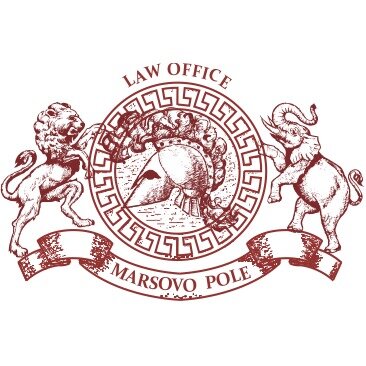
Best Child Visitation Lawyers in St Petersburg
Share your needs with us, get contacted by law firms.
Free. Takes 2 min.
List of the best lawyers in St Petersburg, Russia


Advocate FREMM

Khrenov and Partners

Bespalov, Stogov and Partners

Petersburg Legal Center LLC

EPAM Law Firm
About Child Visitation Law in St Petersburg, Russia
Child visitation law in St Petersburg, Russia is governed by the broader framework of Russian family law. It seeks to protect the rights and welfare of children after the parents' divorce or separation. The primary legislation is the Family Code of the Russian Federation which stipulates that children have the right to maintain contact with both parents. When parents cannot agree on visitation, courts may intervene to establish an arrangement that serves the best interests of the child, taking into account various factors such as the child's age, health, emotional attachment to each parent, and each parent's ability to provide care.
Why You May Need a Lawyer
There are multiple situations where seeking legal help in child visitation might be necessary. If parents struggle to reach an amicable agreement on their own, a lawyer can help in negotiating and drafting a visitation schedule. In cases where one parent does not adhere to the agreed schedule, a lawyer might assist in modifying or enforcing the visitation order. Moreover, if a parent believes that the child's safety or well-being is at risk, legal advice would be crucial to address these concerns through the proper legal channels.
Local Laws Overview
Family law in St Petersburg aligns with Russian federal law, which emphasizes the child's best interests. Key aspects include: - Both parents are equally entitled to participate in the child's upbringing. - A visitation schedule is established either through mutual agreement or court order. - The non-custodial parent has the right to information about the child's health, education, and welfare. - Visitation cannot be denied without a court order, even if the parent is not fulfilling child support obligations. - The child's opinion may be considered by the court in visitation matters, particularly if the child is over 10 years old.
Frequently Asked Questions
1. What if the other parent is not following the agreed-upon visitation schedule?
You may need to file an application with the court to enforce the visitation order. A lawyer can guide you through the process of filing such an application.
2. Can I modify the visitation schedule?
Yes, visitation schedules can be modified. This typically requires showing that there has been a change in circumstances and that the modification is in the child's best interest.
3. At what age can a child refuse visitation in St Petersburg?
While there is no specific age when a child can legally refuse visitation, courts will consider a child's opinion from the age of 10.
4. Can visitation rights be denied?
Visitation rights can only be denied by the court and typically in situations where the child's safety is at risk.
5. How is 'the child's best interest' determined?
The court considers factors such as the child's health, environment, emotional bonds with each parent, and the parents' capability of caring for the child.
6. Does lack of child support affect visitation rights?
No, a parent cannot be denied visitation for failing to pay child support. These are distinct legal issues.
7. Can grandparents seek visitation rights?
Yes, grandparents can request visitation rights, and the court will determine based on the child's best interests.
8. How long does the court process take to establish visitation?
The duration varies, but the court aims to resolve such matters as swiftly as possible, especially when a child's well-being is concerned.
9. What if my ex-partner wants to move away with the child?
You may challenge the move in court if you believe it adversely affects the visitation arrangement or the child's well-being.
10. Can visitation rights be temporarily suspended?
Yes, if there's an immediate threat to the child's safety, visitation can be temporarily suspended.
Additional Resources
For additional support and information, individuals may turn to the Child Welfare Services of St Petersburg, local family counseling centers, and various non-profit organizations specializing in family law.
Next Steps
If you need legal assistance in child visitation matters, the first step is to consult with a family lawyer who has experience in this field. They can provide personalized guidance based on the specifics of your situation. If necessary, they can represent you in negotiating a visitation agreement or advocating for your rights in court. Documenting any issues or concerns regarding the current visitation arrangement will be beneficial during your consultation.
The information provided on this page is intended for informational purposes only and should not be construed as legal advice. While we strive to present accurate and up-to-date information, we cannot guarantee the accuracy, completeness, or currentness of the content. Laws and regulations can change frequently, and interpretations of the law can vary. Therefore, you should consult with qualified legal professionals for specific advice tailored to your situation. We disclaim all liability for actions you take or fail to take based on any content on this page. If you find any information to be incorrect or outdated, please contact us, and we will make efforts to rectify it.


